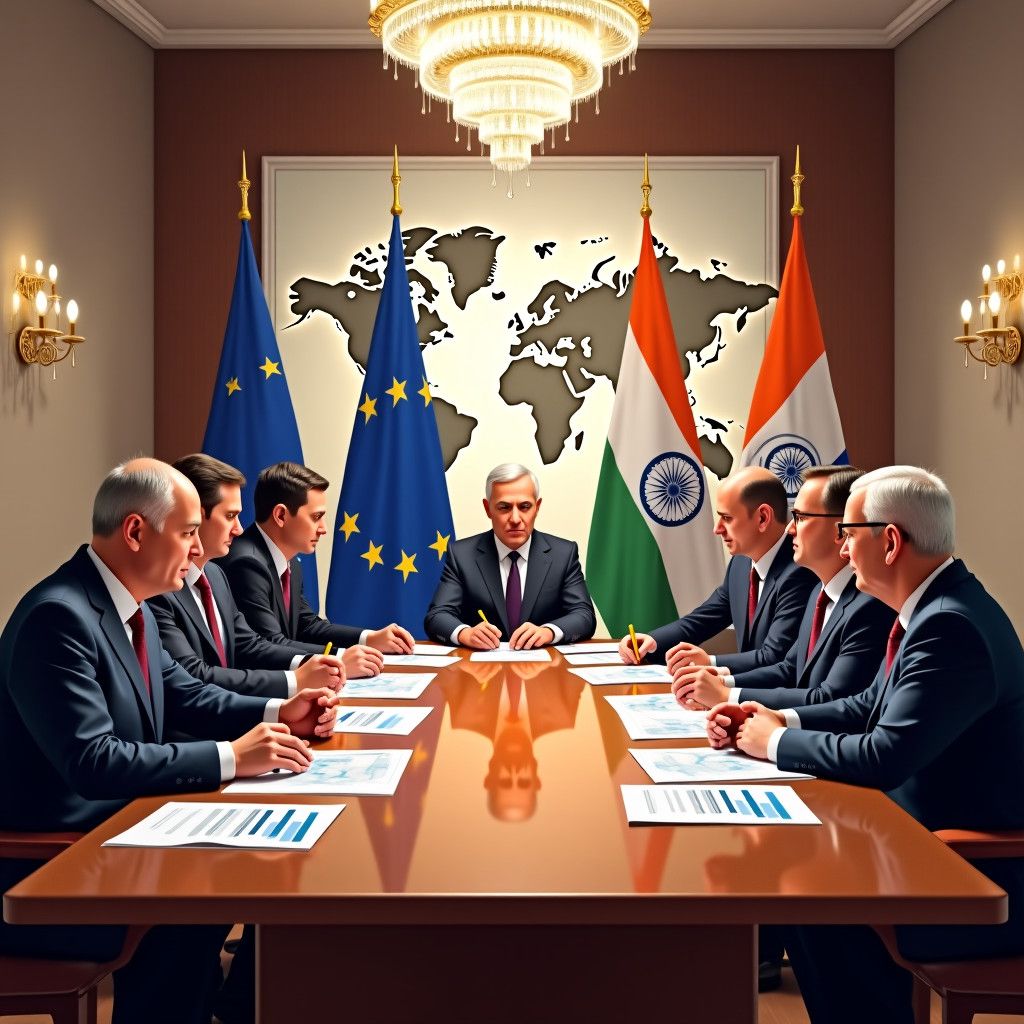In recent months, tensions have surfaced between the European Union (EU) and India regarding information and communication technology (ICT) tariffs. As global interdependence and market thresholds continue to shift, the EU finds itself advocating for a diplomatic resolution aimed at fostering collaborative ties with one of the world’s fastest-growing economies. This approach symbolizes a broader trend in international relations where economic strategies are increasingly intertwined with diplomatic dialogue.
The EU, known for its multilateral trade agreements, has expressed concerns about India’s tariffs that impact ICT goods and services. These tariffs not only inhibit the expansion of trade but potentially stifle innovation, as companies face elevated costs that can dissuade investment in new technologies. In light of this, the EU has proposed that India consider joining the Multi-Party Interim Appeal Arrangement (MPIA), an initiative designed to resolve international trade disputes more efficiently without revisiting conventional judicial processes.
The MPIA offers a framework that fills the gap caused by the stalled Appellate Body of the World Trade Organization. This platform allows participating countries to settle their trade disputes while minimizing the lengthy processes that typically accompany conventional dispute resolution mechanisms. By inviting India to engage in this arrangement, the EU aims to pave a path towards more straightforward and amicable trade relations.
Notably, the potential benefits of this dialogue extend beyond mere tariff adjustments. By participating in the MPIA, India could enhance its competitive edge, leveraging a platform that secures equitable treatment in international trade. Moreover, this collaboration could provide Indian tech companies with easier access to the vast European market, which is increasingly demanding innovative ICT solutions.
A successful resolution of the tariff issue coupled with India’s participation in the MPIA could lead to a fruitful exchange of technology and skills between the two markets. For instance, European firms could benefit from India’s cost-effective IT solutions and software services, while India can tap into Europe’s advanced research and development capabilities. This mutual exchange has the potential to stimulate economic growth in both regions, aligning with the strategic goals of sustainable development.
However, the path towards resolution may not be straightforward. India’s stance on protecting its domestic industry often complicates negotiations. The country may hesitate to lower tariffs significantly or even consider the MPIA if it believes such actions could undermine local businesses. The EU must navigate these sensitivities carefully, ensuring that discussions around tariff reductions are framed within the context of India’s economic interests and growth objectives.
Diverting attention from trade disputes, recent events indicate that both parties have recognized the importance of maintaining a cooperative relationship. High-level dialogues and meetings have been initiated, creating a dialogue framework that reassures stakeholders from both ends. This gentle approach may produce the necessary goodwill to re-open discussions over the contentious issues surrounding the ICT sector.
The implications of a successful resolution transcend trade; a collaborative relationship could redefine how technology and innovation are approached on a global scale. For example, consider the leading smartphone manufacturers increasingly sourcing components and technologies from India—an expansion of the ICT sector that would benefit from diminished tariffs, ultimately reducing prices for consumers and stimulating innovation.
In conclusion, as the EU seeks to resolve its dispute with India over ICT tariffs, the onus lies on both parties to utilize open channels of communication and trust-building measures. A successful negotiation could illuminate a pathway towards powerful economic collaboration, ultimately fostering a robust partnership that would be invaluable in the rapidly evolving global landscape. The emphasis should not merely be on adjusting tariffs but on cultivating a sustainable ecosystem where innovation flourishes and mutual growth is prioritized.
This is more than a trade negotiation; it is an opportunity to reshape international business relations amidst an age of interconnected economies.












